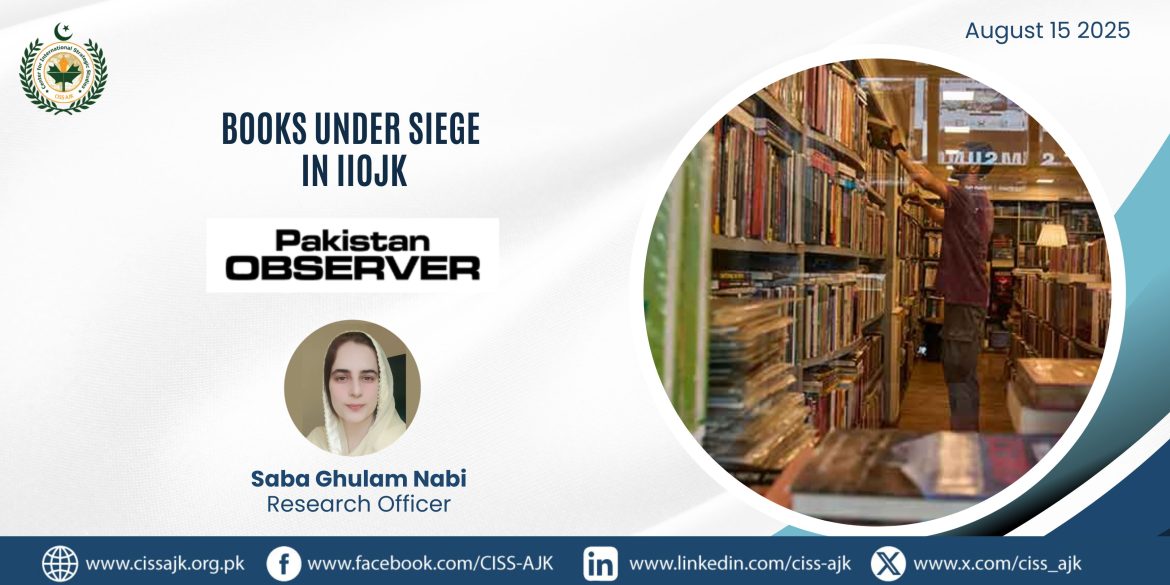SINCE the revocation of the special autonomous status in 2019 under the Modi government, several new laws have been enacted to suppress the population in the illegally India-occupied Jammu and Kashmir (IIOJK).
These laws have facilitated demographic changes and land grabs. Indian forces have taken extensive measures to suppress the state of Jammu and Kashmir and its people. Now, in August 2025, the Indian government has banned 25 books in Kashmir written by Kashmiri authors, including A.G. Noorani and M. Yusuf Saraf, as well as by international authors such as Christopher Snedden and Victoria Schofield, focusing on the socio-political, cultural and constitutional history of J&K.
“The order declared the 25 books ‘forfeit’ under India’s new criminal code of 2023, effectively banning the works from circulation, possession and access within the Himalayan region. The government of India has claimed that these books promote a “Culture of Victimhood” and contribute to youth radicalization in the region, propagate “False Narratives” and “secessionism”. The raids on bookshops and harassment of book sellers continue in IIOJK. A Hindutva campaign aims to erase the History of Kashmir. Indian authorities have criminalized and suppressed dissent in IIOJK, demonstrating no tolerance for narratives challenging India’s narratives or falsehoods, as evident by recent book raids.
The ban on books is an attempt to remove the historical legacy of Kashmir exposing the insecurities of Indian government. Journalists, independent media and dissenting voices in Indian Illegally Occupied Kashmir are being targeted. BJP is also pushing to alter history in textbooks by excluding Mughal rule in India from the curriculum reflecting their hatred towards Muslims and their history. In Kashmir, where oral history has traditionally been tied to written records, this act threatens generational continuity and will cause youth to grow up in an information vacuum, unable to understand their place in history and protest against injustices.
The bans on books in the IIOJK also violate international norms. According to Article 19 of the Universal Declaration of Human Rights, “everyone has the right to freedom of opinion and expression; this right includes the freedom to hold opinions without interference and to seek, receive and impart information and ideas through any media and regardless of frontiers.” India is blatantly violating international norms.
If the world remains silent, the story of Kashmir will be rewritten not by the people, but by those who seek to eradicate it. The international community, from human rights organizations to academic institutions, must demand transparency on the list of banned books, advocate for their reinstatement and assist the digitization and preservation of Kashmiri literature beyond the reach of censorship. Banning books does more than merely silence speech; it declares war on memory itself. In Kashmir, that war fought page by page.
— The writer is Research Officer at CISS, AJK.



